From its very first trailer, Like a Dragon: Infinite Wealth sold us an "Ichiban Kasuga Goes To Hawaii" experience. Long-time series stalwart Kazuma Kiryu, who was also there for reasons not entirely clear, was simply going to be along for the ride. The game, billed as the longest yet in a franchise notorious for its very long video games, looked to be saying goodbye to grimy alleys and Mahjong parlours and hello to blue skies and sandy beaches.
This is not actually the case! Ichiban is indeed present, and much of the game is set in Hawaii, but Infinite Wealth isn't really a game about either of them. It is, once again, a game all about Kazuma Kiryu, the man the Yakuza series so desperately wants to move on from, but so desperately can't manage to kill off.
SPOILERS
Sega were not kidding; this is a long video game. It takes 70-80 hours just to mainline the story missions, and considering that's usually around half the ideal Yakuza experience, Infinite Wealth could easily take folks 120-140 hours to "finish". Which might explain why so many of its reviews last month were curiously brief; I can't blame writers for blasting through this much video game just to hit a deadline. For reference, I've been playing the game almost every working day since launch on January 25, and I only finished it on February 20. Long game!Before you go closing the tab in horror at those numbers, or writing Infinite Wealth off as a hopeless time sink, know that it's not long for the sake of it. Yakuza 7 was a time sink, punctuated by several wild difficulty spikes (that required laborious grinding) and a bloated plot that proved to be so forgettable I needed the flashbacks in this game just to remember the specifics of what happened last time around.
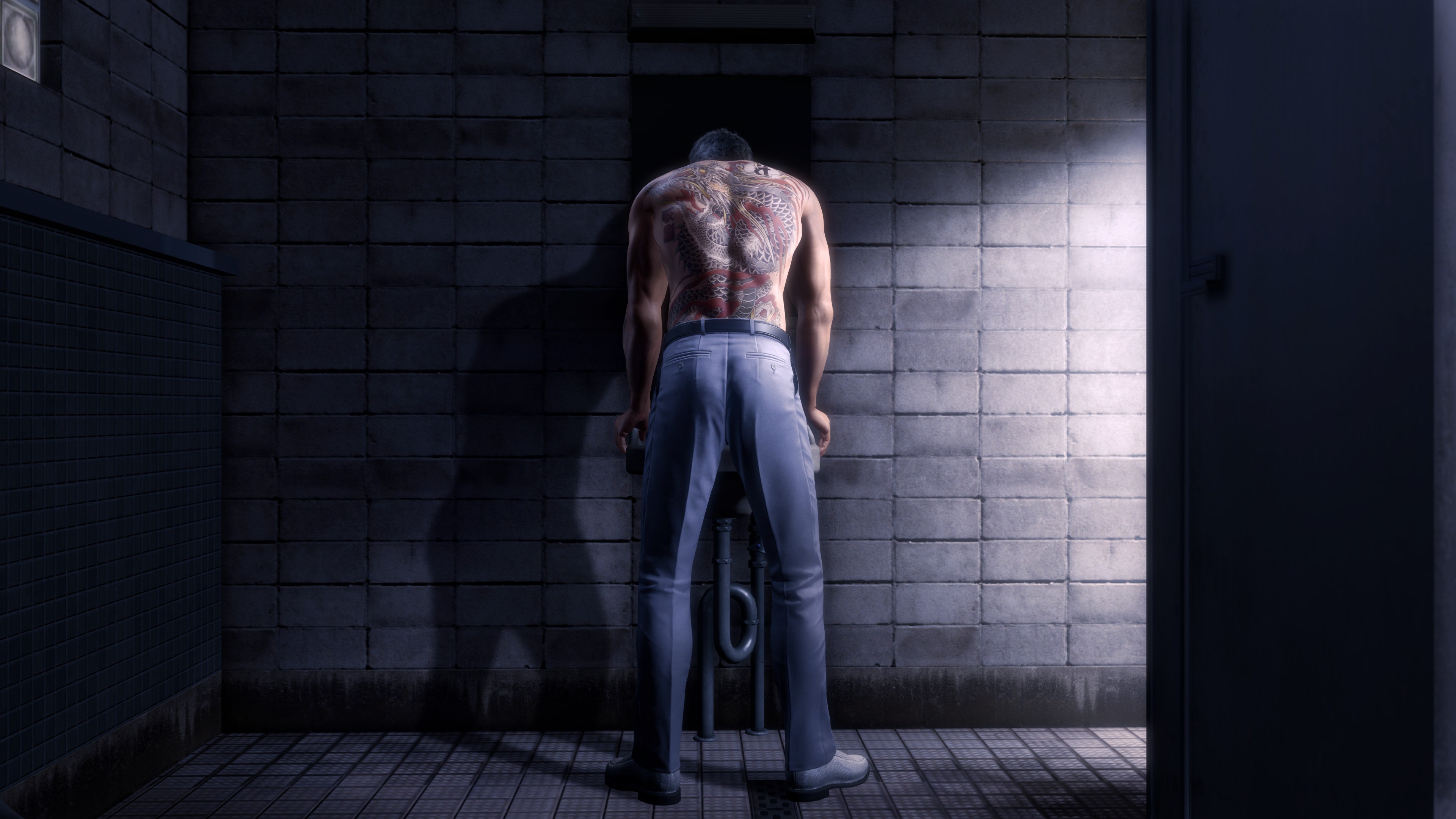
Infinite Wealth, on the other hand, is long for a reason: it is two video games in one. In one game we follow Ichiban Kasuga from the streets of Yokohama to the beaches of Hawaii, a fish somehow both out of but also very deep in the water, making new friends and fighting his way through the Hawaiian underground. This is the Infinite Wealth we were sold in the original trailer, a concerted effort on the part of the series' new leadership to continue moving away from its stodgy roots and towards brighter, happier and funnier horizons.
The other Infinite Wealth is a Kazuma Kiryu Experience. For the game's first few dozen hours you are only controlling Ichiban Kasuga; Kiryu, while there, is just some overpowered member of your RPG party who grunts a lot and looks weird with his new haircut. It makes you wonder what he's even doing here, since we literally just played a game all about Kazuma Kiryu.
Eventually, he tells you why he's here. He's dying.
Again.
This is not Kazuma Kiryu's first death! He first "died" at the end of Yakuza 6, gunned down protecting the only two people on Earth he truly loved, and--within the pulpy confines of the series at the time--it seemed as fitting an end as any for the Dragon of Dojima. Of course he didn't really die; developers Ryu Ga Gotoku Studio psyched everyone out and brought him back--in disguise--not just for 2020's Yakuza 7, but 2023's Like a Dragon Gaiden: The Man Who Erased His Name and now 2024's Infinite Wealth too.
The Man Who Erased His Name played like an extended epilogue to Yakuza 7, one in which--during a very teary finale--Kiryu is able to gain some closure with the kids at the Morning Glory Orphanage, one of the most long-running and important foundations of his storyline. It's surprisingly emotional, and with some loose ends tied up, his story could have ended there.
But no, he's back, and this time he's once again saying his goodbyes, only now he's doing it properly. No more staged deaths, no more expansions-turned-into-spinoffs–Infinite Wealth is Ryu Ga Gotoku Studio deciding, and surely it's definitive this time, to spend a comfortable 30-40 hours of video gaming saying farewell to its principal hero of the last two decades.
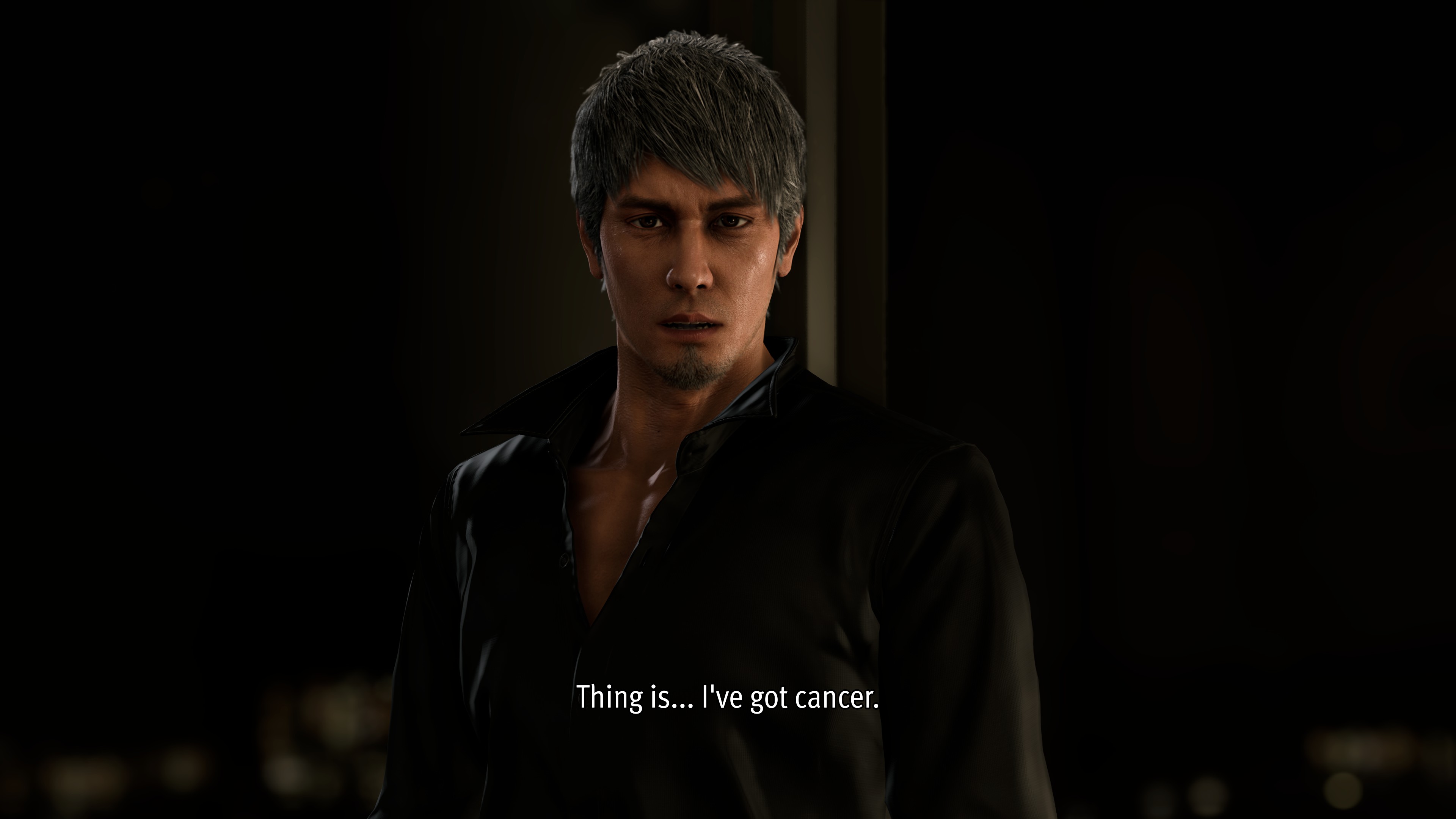
During the early stages of Infinite Wealth we find out Kiryu has cancer, and that he got it in the most Springfield Nuclear Power Plant way possible. He's riddled with it, to the point where doctors have said he's apparently untreatable and only has months to live. Nearly every other character in the game urges him to rest, and many tell him to seek treatment anyway, but he can't and he won't: he has one last job to do, one last innocent to protect, and if he has to die saving her, then so be it.
Kiryu really is dying. The man coughs up blood after some fight scenes, after others he's wheezing and in one he just straight up passes out. This is not, like last time, a ruse. Time waits for no man, not even the Dragon of Dojima, and with his time finally up Kiryu has a singular quest: to save a young girl. Actually, scratch that, he has two quests; in the second half of the game his friends, new and old, decide to put together a bucket list for the player to work through.
Having decided that he's lived enough of his life for others, those pals tell him it's time to start living for himself. In the game's later Kiryu sections--you tend to jump chapter-to-chapter from Ichiban to Kiryu--you're heavily incentivised to do loads of fun stuff like take nice walks with friends, eat at every beef restaurant in Tokyo and crush 150 home runs at the batting cages. Players are also given the opportunity to revisit key moments in Kiryu's life by popping into famous locations from the series' past, including the streets of Kamurocho.
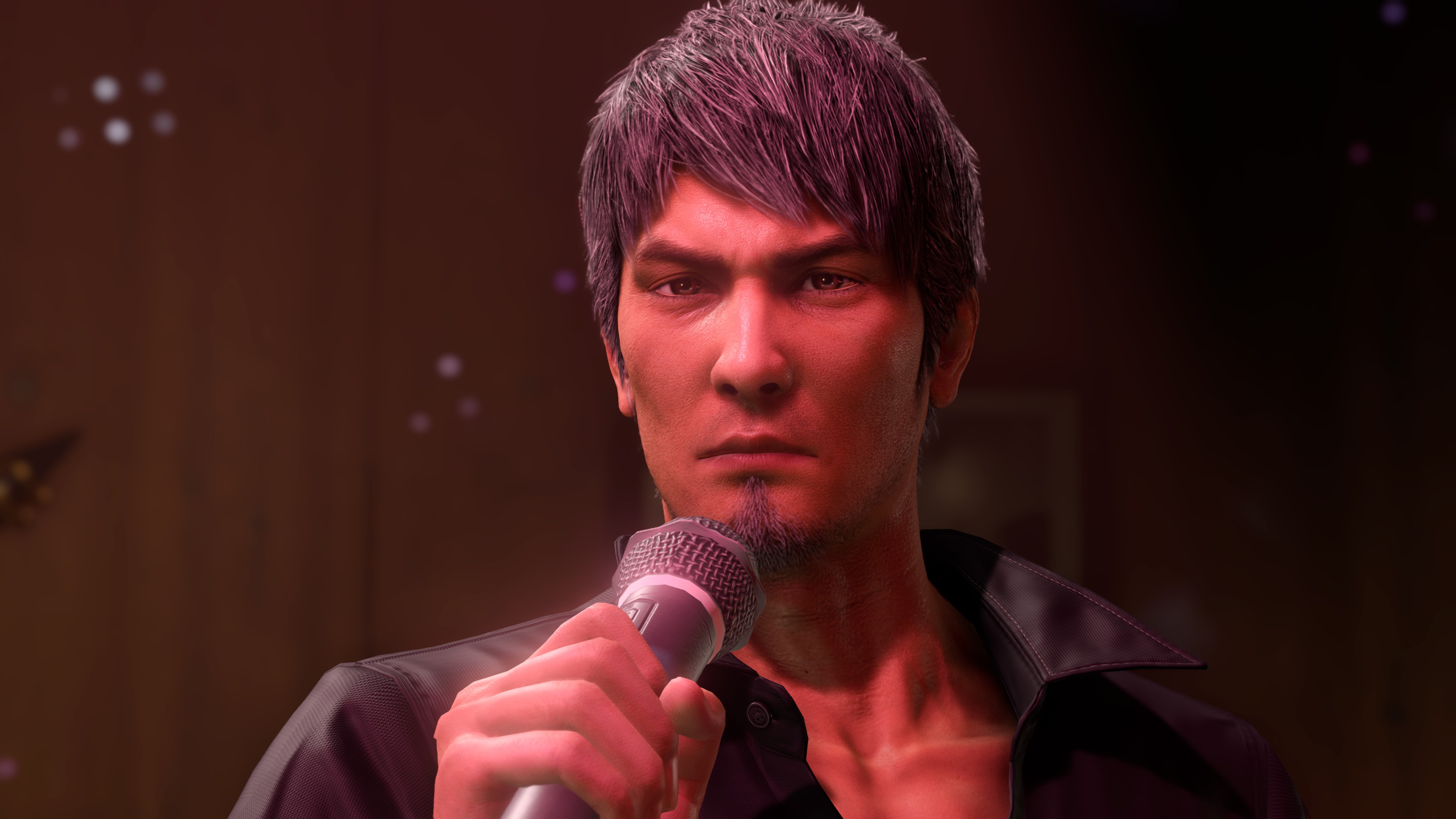
These might sound suspiciously like the same kind of basic grinding activities present in every Yakuza game, and you're right, they are! Every Yakuza game is full of this shit, and most of it ends up entirely skippable, there only as fodder for the true completionists. I should know, I skip them every time. Here, though, I worked my way down the list and tried to do as many as I could, because this time I wasn't just ticking items off a shopping list for the sake of a few meaningless upgrades, I was helping Kazuma Kiryu come to terms with his life.
Eat enough beef and hit enough home runs and you'll basically level up your bucket list, after which you get a little questline where you can revisit major characters from the series' past. From your cop girlfriend in Yakuza 2 to a kid from the orphanage who is now old enough to be drinking in a hostess bar, combined they're an hours-long, meticulously elaborate walk down memory lane that I can't see many other video games finding the time--or the need--to indulge in.
Yet here it's the least they can do. Kazuma Kiryu casts a shadow so long over the Yakuza series that it's tough imagining it carrying on without him. Which...might explain why it has proven so hard for Ryu Ga Gotoku Studio to kill him off. For a series that has been running for so long over so many games, previous attempts at a goodbye have felt a little under-baked. It's only here, devoting dozens of hours of another character's game to it in the most obvious way possible, that it starts to feel like they could actually be doing this titan of a man justice.
What's important here isn't just the quantity of his memories, but their quality. It would have been easy to simply make this a kind of highlights reel of Kiryu's best moments, but the point here was to have him learn from his past actions. With each revisited encounter, Kiryu realises that while in some cases he has changed a person's life for the better, in others he has made mistakes. That while he's been carrying everyone else's burdens, those people have loved him in return. And that, for once, it wouldn't hurt for him to love them back.
It's a surprisingly detailed examination of death from a game like this. Here we have a major character--an action star, no less--dying not in a blaze of glory but from a slow, terminal decline, left for months to stew on his own actions like some red-light version of Luke Skywalker on Ahch-To. We, like Kiryu himself, get the chance to learn that his past isn't just something to celebrate, but is something to reckon with.
These reflections culminate at the game's finale when, at the point he could (and really should) be driving a sword through the heart of Infinite Wealth's villain--a man intent on destroying the Yakuza because of the harm the institution has caused him throughout his life--Kiryu instead breaks down and apologises. For everything that every Yakuza has ever done to this man, he puts it all on his own back. Our hero openly sobs, tears falling over both men's faces, and it's a staggering moment: our stone-faced star, famed for his stoicism and stiff upper lip, has now cried his eyes out at the end of two successive Yakuza games.
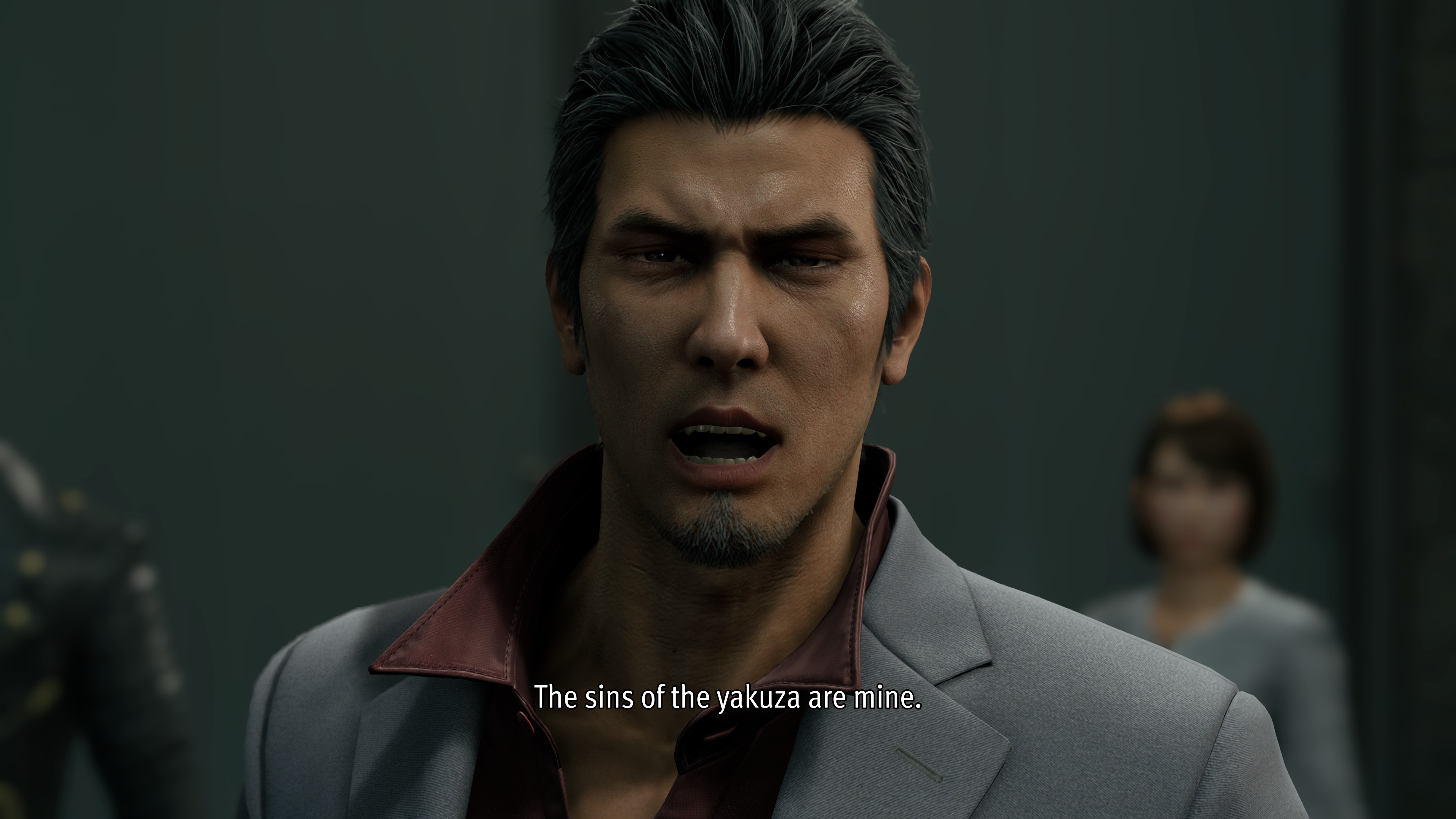
Ever since the Yakuza games shifted from an action-heavy, Kiryu-based experience to the turn-based, Ichiban-led adventures of the last few years, there's been a lingering question as to what exactly Ryu Ga Gotoku Studio should do with their old superstar, who was an odd fit for the series' new, lighter tone. Infinite Wealth's farewell tour has deftly solved that. They don't need to bend the series to meet Kiryu, like Yakuza 7 tried and failed to do. Instead, they've bent the man to meet the series.
Outside of the genre shift, the single biggest difference between the old (Yakuza 1-6) and new (Yakuza 7-onwards) games is that the latter's cast has an earnestness to them that would have been offensive in the former, Nagoshi-led era. Kasuga makes friends everywhere and loves everyone, his openness and naivety central to the man and his storylines, to the point you could have called this game Yakuza: The Power Of Friendship and nobody who played the game would bat an eye. Unchanged from his earlier adventures, Kiryu would have stood out like a grumpy, sore thumb in this new era. But changed? A man aware of his mistakes and opening up to the possibility of being loved and making friends? He fits right in.
By the end of Infinite Wealth, after a last (?) epic fight atop Millennium Tower, Kiryu collapses. As he lies there, unconscious, there's little suspense in the moment, even as he's rushed to hospital, because he's died once already. Fool us once, etc. And what do you know, later during the game's lengthy closing sequences the camera cuts to a hospital and we see Kiryu, looking very sick but also very much alive, finally getting the treatment he needs so he can try to beat the cancer.
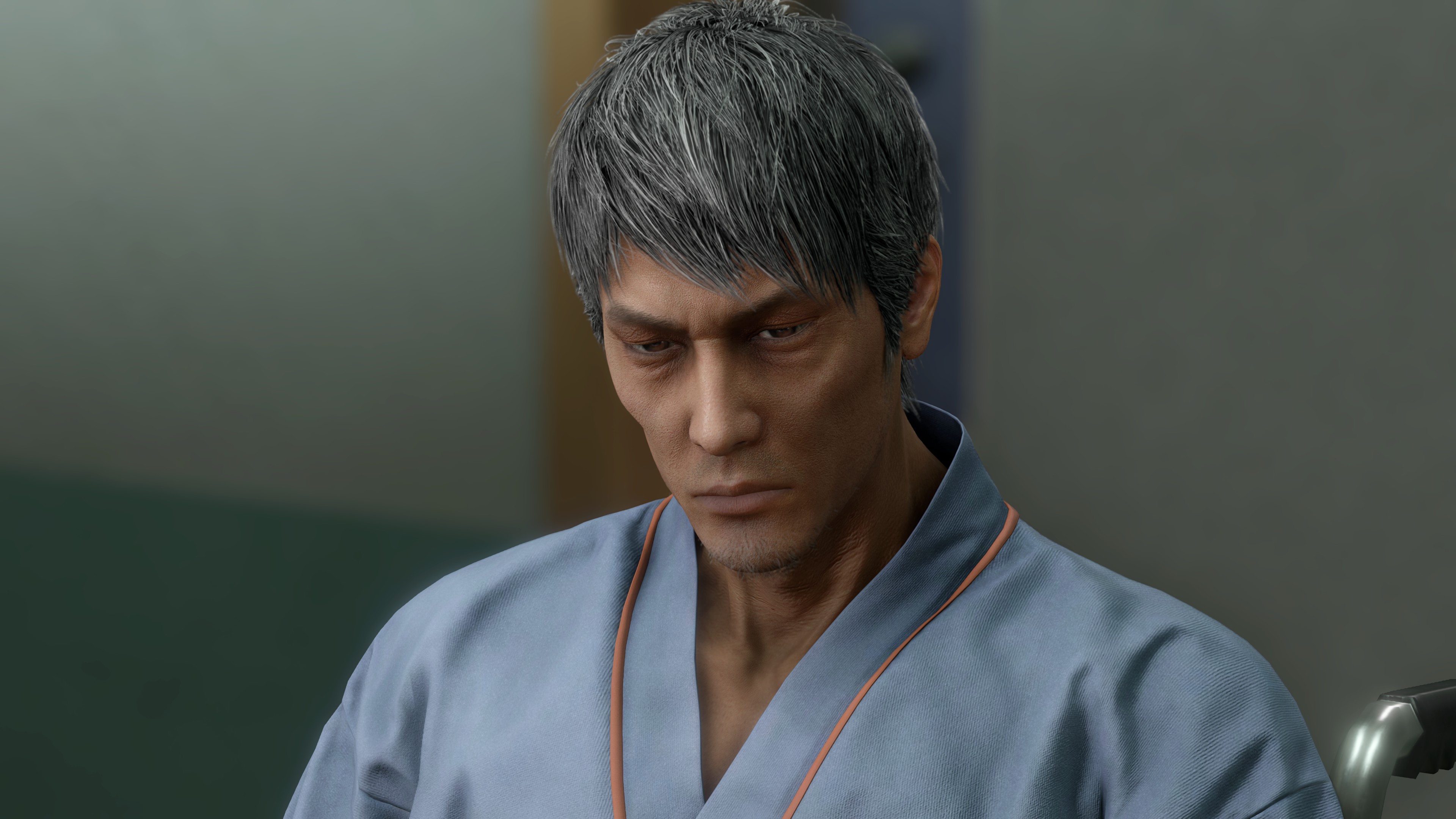
At time of writing, he's not dead! It's very important, given the comic book/soap opera approach this series takes to some characters, to make this clear. In all likelihood he'll survive against all the odds and be back in time for the next game, maybe even in fighting shape. But he won't be the same. Even if it didn't kill him outright, Infinite Wealth killed the old Kazuma Kiryu and asked us all to slowly play through his funeral. Through its adventures, flashbacks and reckonings it changed him into a new man: one who is older, slower, more vulnerable, and who most importantly has to rely on others. A Kazuma Kiryu who, like everyone in the last couple of Yakuza games, has flaws and regrets, and is all the more lovable for them.
Those reviews I mentioned earlier all succeeded to varying degrees in nailing the overall experience of playing Infinite Wealth. It is long, it is good, Ichiban Kasuga is a funny guy, and Hawaii is--font choices aside--a breath of fresh air for the series. But for me the highlight of this very good video game wasn't anything new. It was a fitting, well-deserved farewell to the old.


